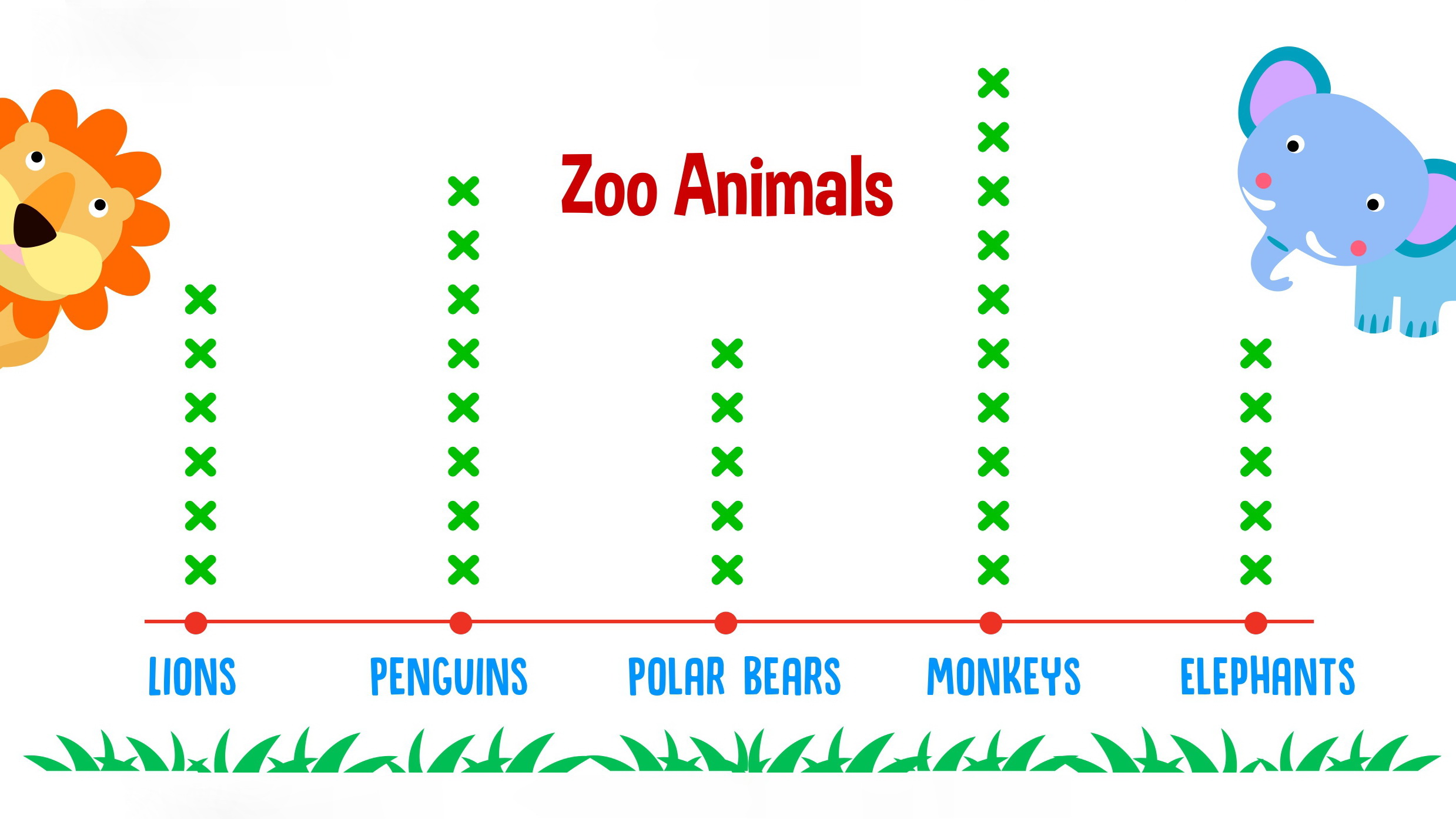Basic counting skills Extra Challenge Worksheets for Ages 5-8
4 filtered results
-
From - To
Explore our "Basic Counting Skills Extra Challenge Worksheets" designed specifically for children ages 5-8! These engaging worksheets provide an exciting way for young learners to enhance their counting abilities beyond the basics. Featuring a variety of activities that incorporate visuals, patterns, and fun math problems, our extra challenge worksheets motivate students to develop critical thinking skills while counting. Perfect for classroom or at-home learning, these resources align with educational standards and cater to different learning styles. Help your child gain confidence and strengthen their foundational math skills with our high-quality, printable worksheets. Dive into fun learning today!
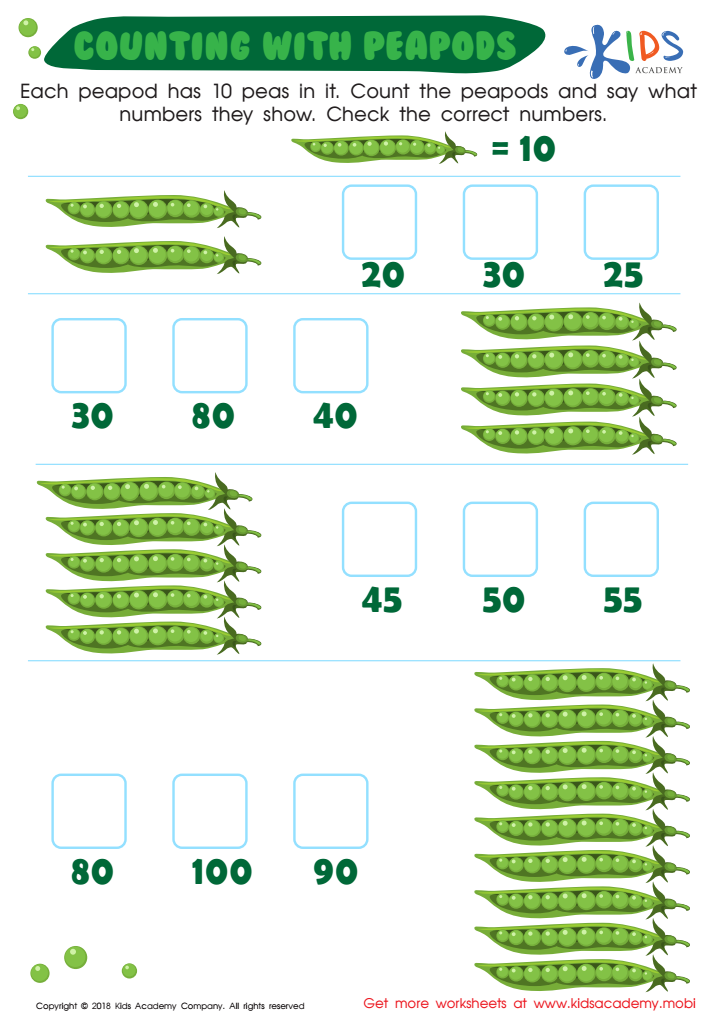

Number Worksheet: Counting With Peapods
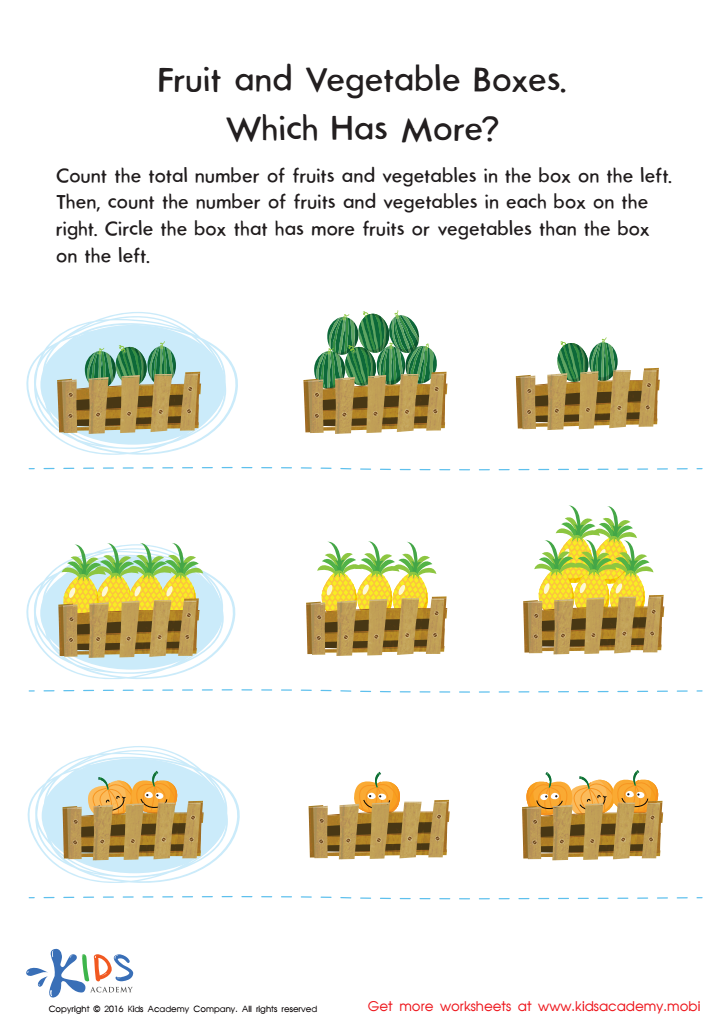

Which Has More? Size Worksheet
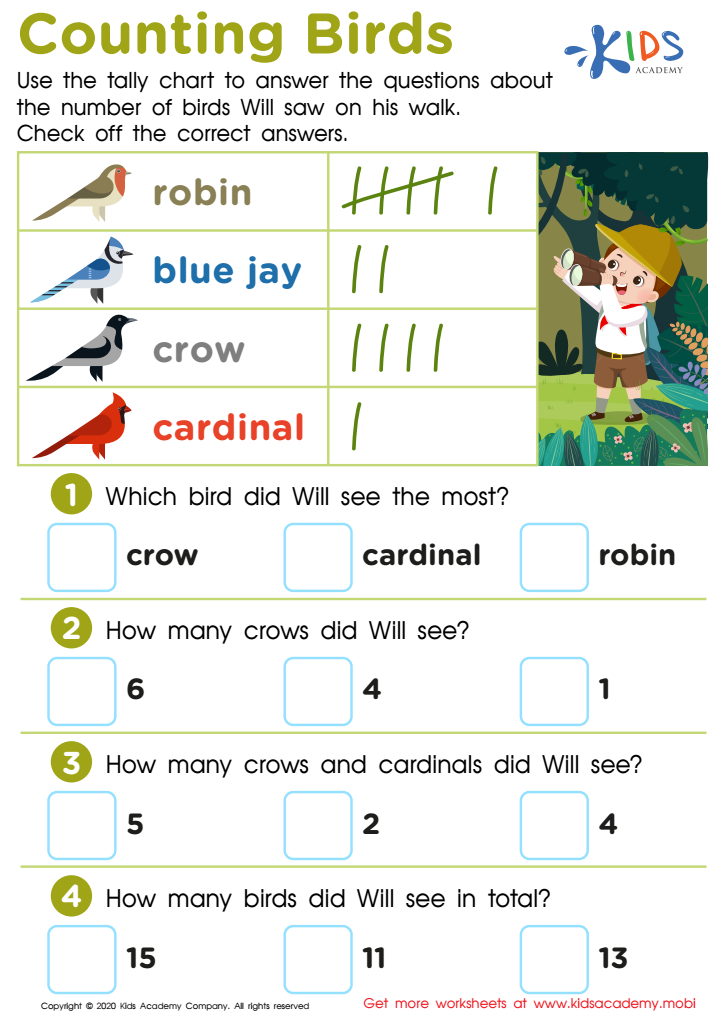

Counting Birds Worksheet
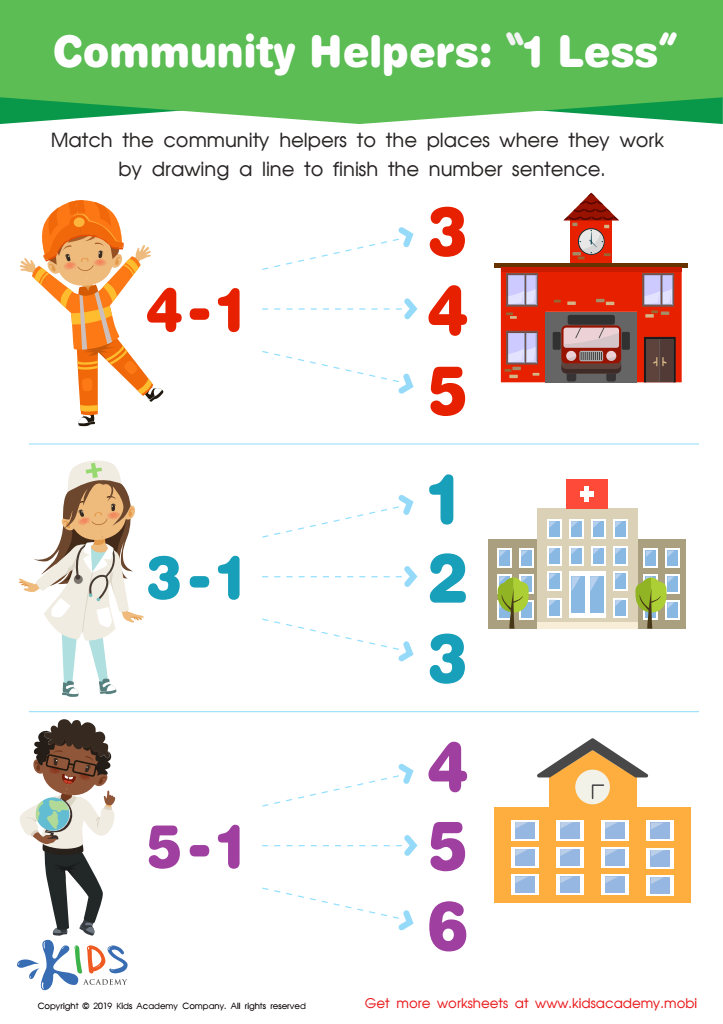

Community Helpers: 1 less Worksheet
Basic counting skills are foundational for young learners, laying the groundwork for more advanced mathematical concepts. For children aged 5-8, developing these skills is crucial not only for academic success but also for everyday life. Parents and teachers should prioritize these skills for several reasons.
First, counting is essential for understanding numbers, helping students grasp concepts like addition, subtraction, and even division later on. Young learners who are confident in counting are more likely to engage with mathematics enthusiastically and effectively.
Moreover, counting skills support cognitive development, enhancing memory and critical thinking. Through counting exercises and games, children learn to recognize patterns, sequences, and even problem-solving techniques, which are invaluable in later learning stages.
Additionally, basic counting permeates daily activities, helping children make sense of their environment. From counting objects during playtime to managing tasks like sharing or dividing snacks, counting fosters independence and builds life skills.
Finally, mastering counting can bridge learning gaps and boost children's self-esteem, fostering a positive attitude toward school and collaborative activities. By recognizing the importance of these early skills, parents and teachers can ensure that students develop a strong mathematical foundation that supports their growth both academically and socially.
 Assign to My Students
Assign to My Students








